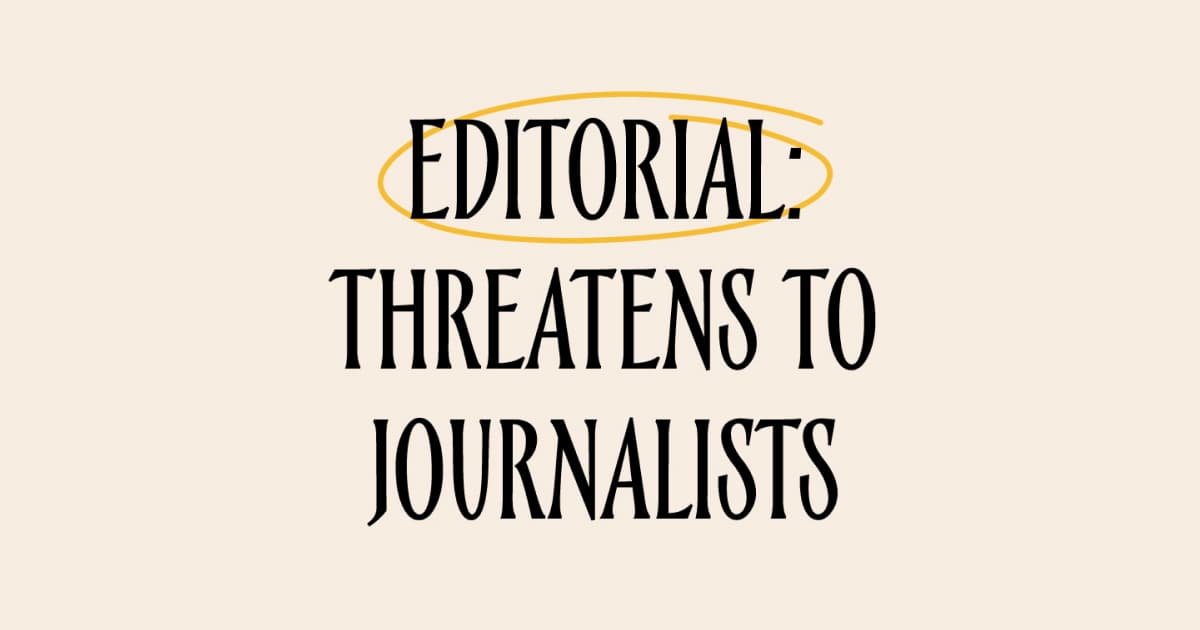Editorial: Threatens to journalists

Editor's note: Editorials are articles that present the opinion of the editorial team of Svidomi.
Occupation authority in Crimea wants to accuse Iryna Danylovych of "treason". Iryna Danylovych is a medic from the temporarily occupied Crimea who wrote on social networks about problems in health care. On April 29, 2022, the Federal Security Service (FSB) conducted an illegal search and arrested the woman. She did not get in touch for twelve days; during the court session, Danylovych highlighted that the FSB threatened her with death. It is one of the thousands of stories that happen to media workers in the temporarily occupied territories of Russia.
It has never been easy for journalists in Ukraine. Until 2014, when the Russian-Ukrainian war began, human rights defenders recorded obstruction of their activities at the very least. Only those who agreed with the government could work freely, which means "does not publish anything bad against it." Others were threatened and terrorised; some were killed. Since 2014, the situation has not improved, and a new condition has been added — to counter Russian narratives with information. Yet, the independent press continued to be destroyed in Ukraine.
In 2014, most of our team studied in high school. Many of us remember the Revolution of Dignity and the start of the war only from the news. Today, in our 20s, we know firsthand what war and journalistic work during the war are like.
Svidomi CEO and founder Anastasiia Bakulina created this media four years ago. The reason is that young people in Ukraine have stopped reading the news due to fatigue and exhaustion from the war news. So she launched an Instagram page, which young people use the most. As a result, Svidomi has grown to 165,000 subscribers in four years, at most 30 years old. They all need us; they need information and explanations.
On February 24, 2022, the need for news increased by 100%. From 50 thousand subscribers, we grew to 100 in a few days, which confirms the hypothesis. The same thing happened to foreigners interested in what kind of war was going on in the country a few hours away by plane. Genocide is taking place in Ukraine. While people are tired of reading about Ukraine, and others complain that there is less talk about Afghanistan or Palestine, Russia is still killing us.
The independent press is being destroyed again but on a larger scale. Since February 24, 43 media workers have died due to Russia's military aggression. Two are missing, and an unknown number of journalists are in Russian imprisonment. What is happening in the temporarily occupied territories is hidden; we can find out only after de-occupation.
At school, being a journalist seems like a romantic profession: you communicate with people, go on trips, and work at the office. In practice:
- You communicate with police officers who exhume the bodies of the dead.
- You go on a trip to newly de-occupied territories to record the stories of people who survived.
- You work at the office before a missile destroys it.
You can get tired of it, it's true. However, it is much faster to do it when this tiredness does not harm: being tired of the war in Ukraine does not mean forgetting about it and moving on; to be weary of the war abroad means to continue living as before. It is a matter of security.
But every war-weary person abroad means minus support for Ukrainians, minus help, and minus one more soldier in the back. But we still need your help.
And not only material. Why does Russia continue to commit crimes? Because it feels unplundered. Every war-weary person allows Russia to continue killing. Then, closing our eyes, we untie the hands of the Russians.
British reporter David Patrikarakos in his book "The War in 140 Characters", calls the war of narratives more critical than the military fight. Losing means giving the enemy a chance to spread information.


